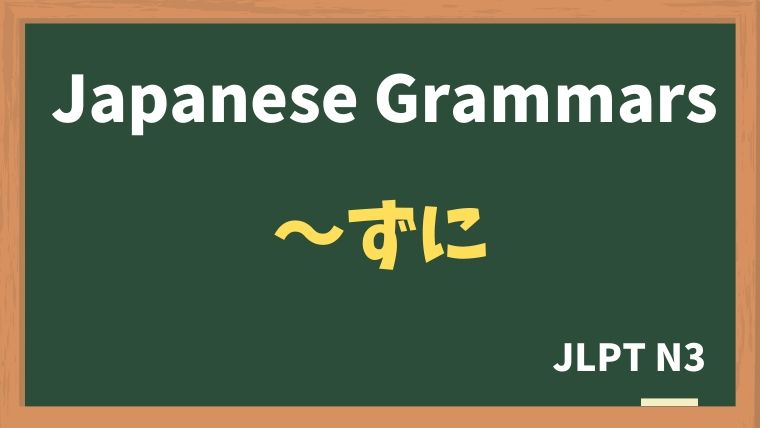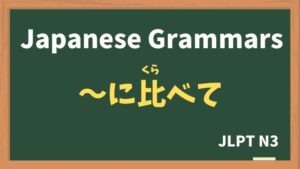
Explanation:〜ずに
fa-check-circleMeaning
"without doing"
It means the same as “~ないで,” but “~ずに” is a little more formal style.
Used to indicate doing something without performing a certain action.
fa-check-circleForm
V(nai form)ない + ずに
Exception: The verb "する" becomes "せずに."(not しずに)
ex.
たべない → たべずに
のまない → のまずに
いかない → いかずに
fa-check-circlePoints
- Negative Form: "〜ずに" is a negative construction, expressing that an action is done without performing another action.
- Alternative to "〜ないで": It’s a more formal or literary equivalent of "〜ないで."
- Attaches to Verbs: This expression is typically attached to verbs to indicate the action that was not done.
fa-check-circleJLPT Level
N3
Sample sentenes
朝ごはんを食べずに学校へ行った。
I went to school without eating breakfast.
彼は何も言わずに部屋を出て行った。
He left the room without saying anything.
息子は朝寝坊したので、ご飯も食べずに会社に向かった。
My son headed for his office without eating breakfast because he overslept.
私はサラダにドレッシングをかけずに食べます。
I eat salad without putting some dressing.
私は毎日、電気を消さずに寝ます。
I sleep without turning off the light everyday.
JLPTの勉強は大変ですが、あきらめずに頑張ります。
Studying JLPT is tough but I will do my best without giving up.
友達に借りた本を読まずに、返してしまった。
I returned the book that I borrowed from my friend without reading it.
昨日はどこへも行かずに、家でずっとゲームをしていました。
I was playing video games at home yesterday without going anywhere.
5時になるとトムさんは何も言わずに帰ってしまった。
When it 5 o’clock came, Tom had gone home without saying anything.
Vocabulary
| Japanese |
English | |
| 朝ごはん | あさごはん | breakfast |
| 朝寝坊する | あさねぼうする | to oversleep |
| 向かう | むかう | to head for |






